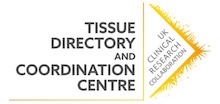Survey of potential biobank users in Germany
From ongoing user satisfaction monitoring, we know that researcher-customers of biobanks in Germany are very satisfied with the services they receive. But what about scientists needing samples for their research who are not aware of the services provided by biobanks? To address this issue, the German Biobank Node (GBN), which is part of BBMRI-ERIC, asked “potential biobank users” (i.e., researchers with project funding) about their attitudes towards collaborating with biobanks to carry out their research. More than 330 researchers from medical faculties at university hospitals participated in an online survey. In our latest blog post, Cornelia Specht, managing director of the GBN, tells us about the survey results and conclusions.
What was the purpose behind your survey?
Our aim was to learn about the attitudes of academic researchers towards biobanks. We were particularly interested in researchers who had not collaborated with a biobank before. We wanted to have a better understanding of the researchers’ needs regarding the use of samples, acquisition procedures and storage conditions, and reasons for using – or not using – biobanks.
Therefore, we asked them questions including:
- What would convince you to process samples for your research in a biobank, or to store your samples in, or obtain samples from, a biobank?
- Have you decided against using a biobank’s services in the past, and if so, why?
How was the survey organised?
Ten university hospital partners of the German Biobank Alliance (GBA) conducted the survey. The survey was given to researchers based at the university hospitals, where the participating GBA partners operate core facilities. The template for the quantitative, anonymous survey was developed centrally by GBN and then the survey was sent out by the partner institutions.

What is the relationship between the German Biobank Node and the German Biobank Alliance?
The GBN is the umbrella organisation for biobanking in Germany and the German national node for the European network BBMRI-ERIC. Under GBN’s leadership, biobanks from 18 university hospitals and two IT development centres joined together to form the GBA.
Our partners are harmonising their quality management procedures and standards and are establishing a networked IT structure to facilitate easy access to quality-assured samples.
Stakeholder engagement is also a very important area for us and was a major driver for conducting this survey.
What were the survey findings?
We identified two key results:
- There is a significant lack of awareness of the local biobanks’ services available.
-
- Almost half (48%) of researchers without any experience interacting with a biobank stated that they simply did not know what services were available at their own hospital’s biobank.
- Many of these researchers had collected and stored samples by and for themselves without utilising the infrastructure and facilities already available at their own institution.
- There is insufficient transparency surrounding the services biobanks offer.
-
- For example, some non-users who did know about their local biobanks said that they were concerned about unpredictable total costs.
- When asked what would convince them to use a biobank in the future, high quality of samples and reliable storage conditions were considered most important.
- Furthermore, the respondents noted that the biobanks’ terms and conditions should be transparent and easily accessible.
How do you plan to make use of these results?
We have created a forum for the open exchange of experiences to support our biobank partners at the local level in raising their profile within their host institutions. For example, communication strategies that have been particularly successful for one biobank could be recommended to others as best practice examples.
We are also developing a harmonised cost model to foster improved transparency on the biobanks’ part.
With respect to potential biobank partners, we are working closely with the German network of coordination centres for clinical trials to enhance cooperation with local biobanks.
Last but not least, we have set up a dedicated area on the GBN website for researchers, where we offer information on the advantages of biobanks and their services, present research success stories, and promote the “Sample Locator”, an IT search tool that allows cross-biobank searches for samples and related data.
Any final thoughts?
The need for greater transparency is the main theme that has emerged from our research. This should be addressed primarily at the local level using informative websites and effective communications strategies. It should also be supported at the national level by GBN improving awareness in the scientific community about the importance of quality standards and their impact on research and reproducibility of results.
This ensemble play of local and overarching, national activities has proven successful, e.g in a donor campaign in 2018, and emphasises the importance of the national node in setting standards and providing leadership, especially with respect to stakeholder engagement.
Interested in hearing more?
Cornelia will be speaking about the survey findings and the stakeholder engagement activities of the GBN at the UK Biobanking Showcase being held in Nottingham, 19th November 2019.
